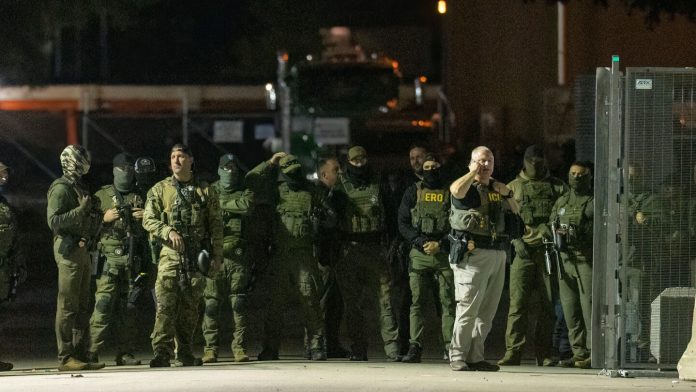By Christine Fernando
Associated Press
Thank you for reading this post, don't forget to follow and signup for notifications!
CHICAGO — Federal immigration officers in the Chicago area will be required to wear body cameras, a judge said Thursday after seeing tear gas used against protesters.
U.S. District Judge Sara Ellis said she was a “little startled” after seeing TV images of clashes between agents and the public during President Donald Trump’s administration’s immigration crackdown.
| REGISTER NOW: Protecting major events from drone threats
“I live in Chicago if folks haven’t noticed,” she said. “And I’m not blind, right?”
Protests to oppose U.S. Immigration and Customs Enforcement have ramped up in the nation’s third-largest city, where groups have assembled to monitor ICE activity and film agents.
Separately, the Trump administration has tried to deploy National Guard troops, but the strategy was halted last week by a different judge.
Ellis last week said agents in the area must wear badges, and she banned them from using certain riot control techniques against peaceful protesters and journalists.
“I’m getting images and seeing images on the news, in the paper, reading reports where I’m having concerns about my order being followed,” the judge said.
Sean Skedzielewski, an attorney representing the government, laid blame with “one-sided and selectively edited media reports.”
In 2024, Immigration and Customs Enforcement began deploying about 1,600 body cameras to agents assigned to Enforcement and Removal Operations.
At the time, officials said they would be provided to agents working in Baltimore, Philadelphia, Washington, Buffalo, New York and Detroit. Other Homeland Security Department agencies require some agents to wear cameras. U.S. Customs and Border Protection has released body-camera video when force has been used by its agents or officers.
Trending
Company News

Software
Prince William County Fire and Rescue System strengthens daily checks with PSTrax
“I felt that PSTrax checked more of the blocks than anybody else did,” Logistics and Procurement Manager Curtis Brown said. “It allows us to meet people where they are generationally and still accomplish what needs to get done.”



